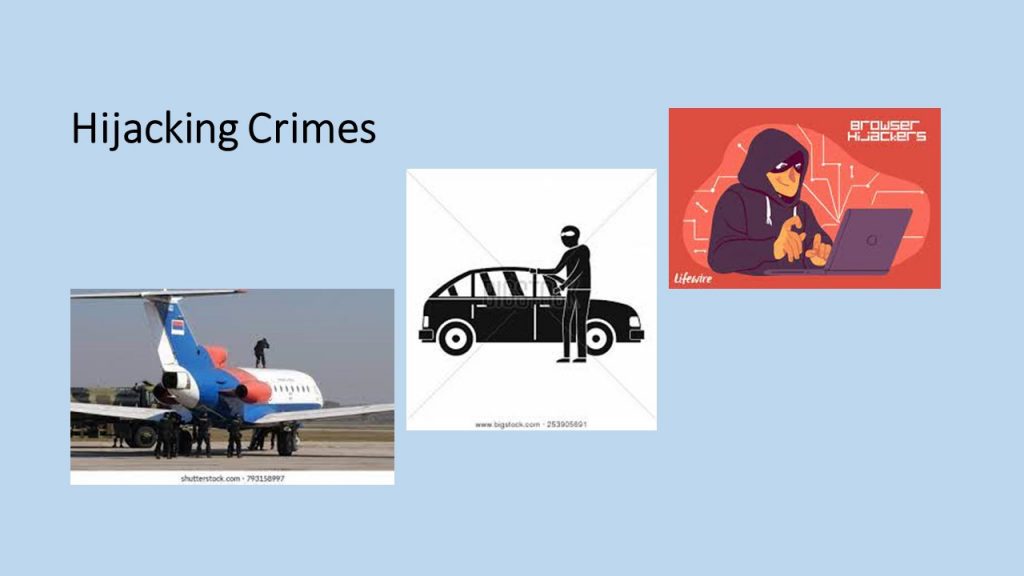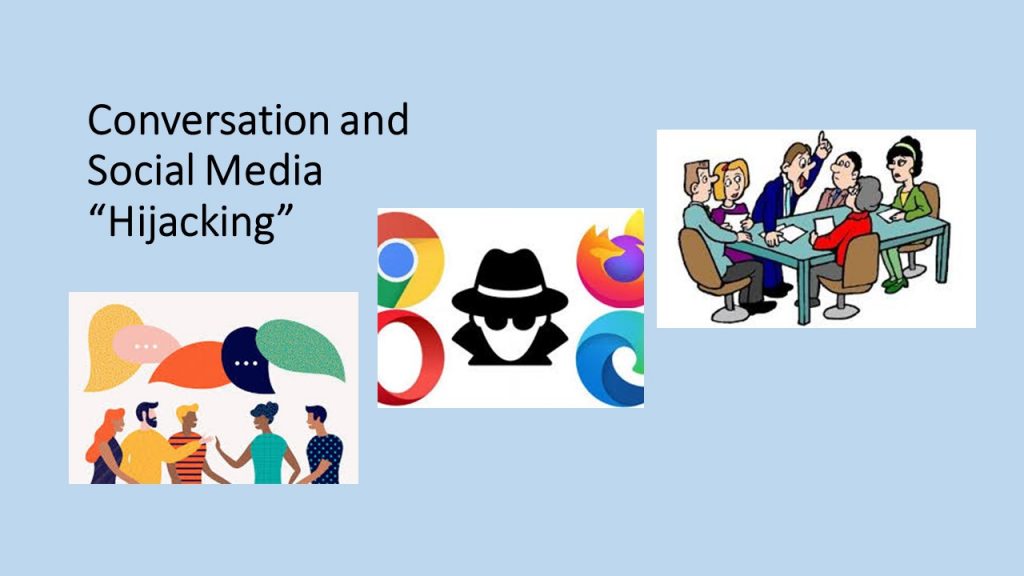
118. Don’t Be A “Hijacker” | 請別成為”劫機者”
– Musings of Dr. Jamie C. Hsu, 7.5.2021
The dictionary definition of “hijacker” is someone who unlawfully seizes an aircraft or vehicle in transit and forces it to go to a different destination or uses it for one’s own purposes.
Although none of us will ever be a hijacker under this definition, I find that we are often guilty of being a different kind of hijacker. In our daily life, we knowingly or unknowingly seize a conversation or idea and steer it in a different direction or change its intent, leaving the original speaker stranded.
In many professional meetings or social gatherings, you’ll see someone try to tell a personal story or share an idea with everyone. But before they can finish, another person jumps in and says, “This reminds me of what happened to me…” or “I have a better idea…” The poor originator never has a chance to finish their story. This is conversation/idea hijacking at work. Next time, when you are with a group of people, observe the dynamics of the conversations. You’ll easily identify many hijackers and victims.
This phenomenon is even more prevalent in the social media world. When you open any group chat, you’ll see someone post an idea or story to share with friends, hoping to get comments back. But often times, before that can happen, someone else will immediately post a totally unrelated topic and stop the flow of the conversation. The original posting is ignored, left there and lost in the digital world. This kind of behavior is rude, just like cutting in line. Because the social chat is non-physical and less visible, such hijacking behavior is less noticeable and therefore committed and tolerated by many people.
When we were little, we were all taught by our parents: don’t interrupt other people and don’t cut in line. As we participate in more online meetings and chat groups, maybe it’s time to review the etiquette of conversation and relearn the art of listening with empathy and personal interest.
As leaders we must pay attention to minimize such hijacking behavior so that everyone in the team feels welcomed and valued. New ideas and esprit de corps will flourish to create a strong and cohesive winning team.


請別成為”劫機者”
-作者 許俊宸博士
-中譯 薛乃綺
翻開字典,“hijacker”的意思是指非法劫持運輸途中的飛機或車輛,並強迫其前往不同的目的或將其用於私人目的者。
雖然在這個定義下,你我都不會是劫機者;但我卻發現我們經常不自覺成為另類的劫機者而感到內疚。在日常生活中,我們會有意或無意地將某個對話或想法,轉向不同的方向或改變意圖,讓最初提出這個對話或想法的人陷入尷尬的情況。
在許多專業的會議或社交聚會中,你會看到有人試圖向每個人表達自己的事情或分享想法。沒等這個人講完,另一個人就插話說:”我想起來我也發生這樣的事情…”、”我有一個更好的主意…”;而這個可憐的發起人卻永遠沒機會完成他想講的事情。這就是工作上對話/想法的”劫持”。下次當你和一群人在一起談話時,可以觀察大家談話的動態。你可以輕易判別出許多劫持者和受害者。
這種現象在社交媒體世界中更為普遍。當你打開任何群聊時,你將看到當有人發布了一個想法或故事與朋友分享時,會希望能得到評論和回应。但很多時候,在此之前,其他人會立刻發布一個完全不相關的話題、並阻止原本對話的進行。最初的帖子早被忽略,留在原地並消失在數位世界中。這樣的行為很粗魯,就像插隊一樣。由於社交聊天不是面对面的且不太明顯,因此這樣的行徑不太會引起注目,也被許多人所習慣及容忍。
小時候爸媽都會教我們不要打斷別人講話、不要插隊。隨著我們參加更多的線上會議及聊天群時,也許是時候回顧一下談話禮節,並重新學習用同理心以及傾聽他人的這門藝術了。
作為領導者,我們必須注意儘量減少這種劫持的行為,讓團隊中每個人都感覺受到歡迎和被重視。讓新的想法和團隊精神能更蓬勃發展,以創建一支強大而有凝聚力的獲勝團隊。


